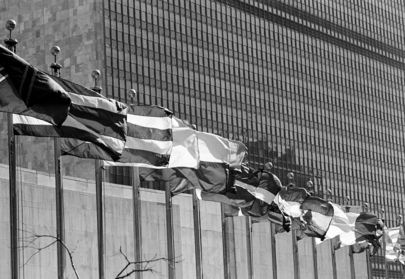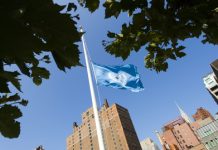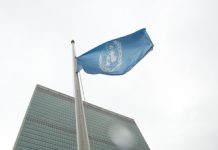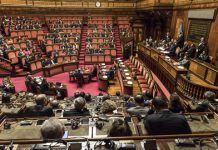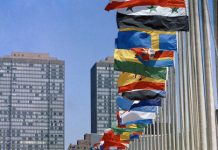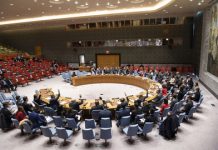Sudan: UN-hosted talks on aid relief and civilian protection to continue in Geneva
UN-led talks between Sudan’s warring parties were set to continue in Geneva on Friday to advance discussions on humanitarian aid and civilian protection, with “possible local ceasefires” being a means to that end.
Fighting erupted in April last year between rival militaries over a proposed transition to civilian rule, following a military coup in 2021 and the 2019 ousting of long-time President Omar Al-Bashir.
UN Geneva Spokesperson Alessandra Vellucci confirmed that only one of the delegations attended the initial discussions after senior representatives from the Sudanese Armed Forces and the paramilitary Rapid Support Forces accepted invitations to meet the UN Secretary-General’s Personal Envoy for Sudan, Ramtane Lamamra.
Mr. Lamamra and his team invited both parties to continue discussions with him separately on Friday in the Swiss city, in a process known as proximity talks.
The development comes amid increasing international pressure for an end to the fighting, which has uprooted millions and sparked growing fears of imminent famine.
The humanitarian community has also warned about the widespread upheaval caused by the conflict which spread quickly from the capital, Khartoum, to other regions including Darfur, leaving nearly 25 million people – half of Sudan’s population – now requiring aid.
More than 14,000 people are believed to have been killed and 33,000 injured amid ongoing heavy fighting, which has also created the world’s largest displacement crisis. Over 11 million people have been forced to flee their homes and international experts recently warned that 755,000 people face famine in the coming months.
DR Congo: Conflict escalation sparks fear of widespread disease outbreaks, warns WHO
At least 25 million people are caught up in the humanitarian crisis in the Democratic Republic of the Congo (DRC) where a neglected health emergency risks spiralling out of control, the World Health Organization (WHO) said Friday.
Decades of conflict in the mineral-rich eastern DRC have already led to deadly violence, mass displacement, gender-based violence and mental trauma.
The country now has the highest number in need of humanitarian aid of anywhere in the world.
To date, 7.4 million people have been displaced, including 2.8 million in North Kivu, said Dr Adelheid Marschang, Senior Emergency Officer at WHO, who called for immediate action:
“About 40 per cent of the population, that is 40.8 million people just to share the size of it, face serious food shortages, with 15.7 million facing severe food insecurity and as a result, a higher risk of malnutrition and infectious diseases directly related to that. If immediate action is not taken to address basic needs in DRC, over one million children will suffer from acute malnutrition.”
Cholera, measles, meningitis, Mpox and plague outbreaks have also been reported, exacerbated by flooding and landslides. Mpox is a global health threat, but the DRC alone has reported 20,000 cases and over 1,000 deaths since the start of 2023.
The UN’s 2024 Humanitarian Response Plan for DR Congo aims to assist 8.7 million people but is severely underfunded, at just 16 per cent. The UN health agency needs $30 million to help address needs until the end of the year.
Ambitious UN project aims to connect every school to the Internet by 2030
And finally, around one-third of humanity lacks internet access but this is all set to change thanks to a groundbreaking UN project to connect all schools to the web.
The Giga initiative aims to get every school in the world online by 2030. The partnership between UN digital technology agency ITU, and the UN Children’s Fund, UNICEF, already operates in 34 countries; this number is set to expand to 50.
At the Giga Connectivity Forum in Geneva this week, ITU Secretary-General Doreen Bogdan-Martin said that the UN wanted “every young person to have a voice, a choice and an opportunity in today’s digital revolution”.
Schools that do not have Internet access are already being identified using satellite imagery, open-source technology and AI.
The Giga project then designs connectivity solutions for them, secures funding and works with authorities and private partners to build the infrastructure needed to get kids online.
So far, $6 billion has been raised to finance the initiative over the last three years. To assist existing and new national members, the UN agencies ITU and UNICEF have set up the Geneva Global Connectivity Centre and Learning Hub – it’s been designed to share solutions and knowledge on Internet connectivity so that the ambitious 2030 goal can be reached.
Music composed and produced by Joachim Harris. All rights reserved
Source of original article: United Nations (news.un.org). Photo credit: UN. The content of this article does not necessarily reflect the views or opinion of Global Diaspora News (www.globaldiasporanews.com).
To submit your press release: (https://www.globaldiasporanews.com/pr).
To advertise on Global Diaspora News: (www.globaldiasporanews.com/ads).
Sign up to Global Diaspora News newsletter (https://www.globaldiasporanews.com/newsletter/) to start receiving updates and opportunities directly in your email inbox for free.


